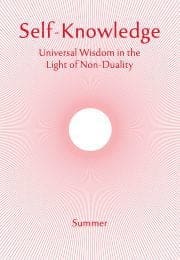Shankara on Meditation and Knowledge
Through careful study and reflection we may gather the following conclusions from the teachings of Shri Shankara regarding the principles underlying the practice of meditation, and the means to knowledge of Reality.
Meditation is but a means of mental discipline, a method of controlling the ever-shifting activity of the human mind, which has been aptly described as a kaleidoscope of thoughts in constant motion.
Shankara and the teachers who follow his tradition explain the benefits of meditation, which means concentrating all one’s thoughts on a single object, usually a symbol of the most high. Meditation helps the gradual cultivation of that intensity of thought and serenity of temper which are necessary for suppressing the myriad sense-impressions that reappear in the mind, and for perceiving the reality veiled behind them.
A question arises: How can Brahman (the ultimate Reality, transcending all thought-forms) which is unknowable by the mind and the senses, be an object of the higher Knowledge which confers eternal freedom?
The answer is that since Brahman is ultimately the same as the individual Self (Jiva), we may get an immediate apprehension of Brahman, but it can never be an object of knowledge.
Consciousness involves self-consciousness and because the Self, in reality, is identical with Brahman, every mode or sample of consciousness—when divested of its phenomenal ingredients —gives us a glimpse of the ever-persistent Reality which is without beginning or end, eternal, pure, devoid of distinction and the same in all.
H.P.S.


